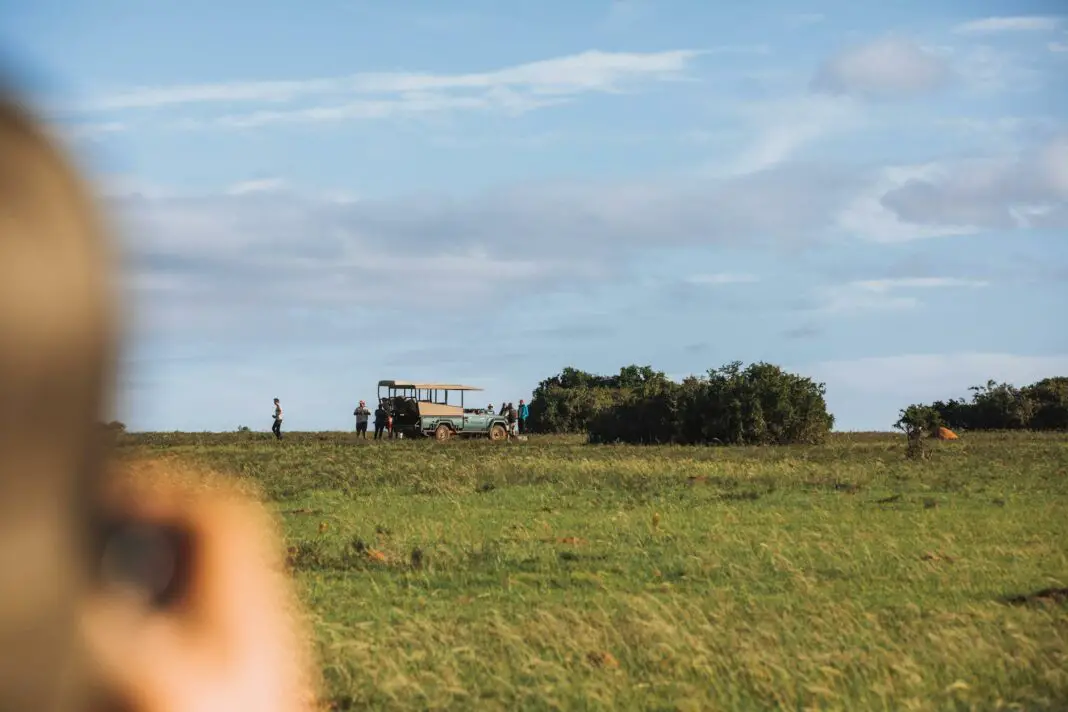**Discovering Thailand: Is it the Ultimate Destination for Wildlife Watching?**
Embarking on a trip to Thailand is like stepping into a vibrant tapestry of nature, culture, and adventure. This Southeast Asian gem is renowned not only for its stunning beaches and rich history but also for the unparalleled wildlife experiences it offers. If you’ve ever dreamed of observing majestic elephants, elusive tigers, or an array of vibrant birds in their natural habitats, Thailand beckons you with open arms. What makes Thailand particularly exceptional is its diverse range of ecosystems, from dense jungles to serene coastlines, each brimming with fascinating fauna.
Moreover, wildlife watching in Thailand is not just about observing animals; it’s about immersing yourself in the intricate web of life that thrives in this extraordinary land. With responsible tourism on the rise, you can engage in ethical wildlife experiences that prioritize conservation and local communities. This blog post delves into why Thailand stands out as the ultimate destination for wildlife enthusiasts, showcasing the best spots, practical tips, and how to engage respectfully with nature.
**Table of Contents**
– **The Rich Diversity of Thai Wildlife**
– **Top Wildlife Viewing Destinations in Thailand**
– **Tips for Responsible Wildlife Watching**
– **What Makes Thailand Unique for Nature Lovers**
– **Best Time to Visit for Wildlife Enthusiasts**
– **Exploring Ethical Wildlife Experiences**
– **Taking Action to Protect Thailand’s Wildlife**
– **Why Thailand Stands Out from Other Destinations**
– **Your Path to Wildlife Adventure in Thailand**
– **In Closing: Embrace the Adventure of Wildlife Watching in Thailand**
– **Frequently Asked Questions**
**The Rich Diversity of Thai Wildlife**
Thailand is home to an astonishing array of wildlife, a factor that undeniably solidifies its reputation as an unparalleled haven for nature enthusiasts. With over 300 species of mammals, more than 1,000 species of birds, and countless reptiles and amphibians, the country offers an abundance of biodiversity that few places on earth can rival. The rich and varied landscapes, including mountains, forests, wetlands, and marine environments, serve as habitats for these incredible creatures.
Imagine witnessing the exquisite beauty of the elusive Indochinese tiger prowling through the lush jungles of Khao Yai National Park, or the heartwarming sight of elephants roaming freely in their natural domain. Moreover, the Andaman Sea invites diving enthusiasts to explore vibrant coral reefs teeming with marine life, showcasing the importance of protecting these delicate ecosystems. Clearly, Thailand’s wildlife diversity is not just a statistic; it is a living, breathing spectacle that captivates the soul and ignites a deep appreciation for nature.
**Top Wildlife Viewing Destinations in Thailand**
When it comes to experiencing the magic of wildlife firsthand, Thailand boasts several prime destinations that should be on every explorer’s radar. One of the crown jewels is Khao Sok National Park, often dubbed as the heart of Thailand’s rainforest. Here, you can embark on guided treks that reveal stunning landscapes, as well as elusive creatures like gibbons and Malayan sun bears.
Additionally, the vast expanses of Kaeng Krachan National Park, the largest national park in Thailand, host a fascinating mix of flora and fauna, including wild elephants and the majestic hornbill. Equally enticing is the stunning region of Chiang Mai, where ethical elephant sanctuaries allow for meaningful interactions with these gentle giants without compromising their well-being. These destinations underscore the importance of responsible tourism while offering breathtaking encounters with wildlife that leave an indelible mark on your journey.
**Tips for Responsible Wildlife Watching**
Engaging with wildlife in Thailand calls for a commitment to responsible practices that benefit both the animals and their habitats. Firstly, respect the animals’ space and refrain from any behavior that could stress them, such as loud noises or sudden movements. It’s crucial to choose eco-friendly tours led by knowledgeable guides who prioritize wildlife conservation and ethical practices.
Moreover, educating yourself about the local wildlife before embarking on your trip helps foster a deeper connection and understanding. Bringing along binoculars for bird watching or a camera with a zoom lens ensures you can capture memories without intruding on the animals’ natural behaviors. Lastly, always leave locations as you found them and practice ‘leave no trace’ principles to protect these precious ecosystems for generations to come.
**What Makes Thailand Unique for Nature Lovers**
Thailand’s unique blend of cultural heritage and natural abundance creates a distinct experience that resonates deeply with visitors. The harmonious coexistence of wildlife and local communities is evident in conservation programs that also empower locals, creating a sustainable tourism model. The country celebrates its natural surroundings through various festivals, eco-tourism initiatives, and volunteer opportunities that further enrich your travel experience.
Moreover, the country’s commitment to preserving its natural resources is illustrated through various national parks and wildlife sanctuaries that protect endangered species and restore habitats. This proactive stance not only invites visitors to explore but also instills a sense of responsibility to care for these irreplaceable ecological treasures. As you explore Thailand’s verdant landscapes, the experience goes beyond mere observation; it transforms into a powerful connection to both nature and culture.
**Best Time to Visit for Wildlife Enthusiasts**
Timing your visit to Thailand can significantly enhance your wildlife-watching experience. The best period generally spans from November to April when the dry season reigns, making it easier to spot animals. During these months, many species are active and more visually accessible, as vegetation thins out.
Particularly, the months of February to April witness an increase in wildlife sightings, especially in national parks. In contrast, the monsoon season, from May to October, can result in heavy rains that might limit accessibility to some remote areas but can also present unique opportunities for witnessing the revival of flora and fauna. Ultimately, understanding the seasonal patterns will empower you to schedule an adventure tailored to your wildlife preferences.
**Exploring Ethical Wildlife Experiences**
In today’s landscape, ethical wildlife experiences are becoming increasingly important for conscientious travelers. Thailand offers a myriad of activities that allow visitors to engage with wildlife in a respectful manner. For instance, consider visiting a reputable elephant sanctuary where you can learn about these magnificent animals while supporting their care and conservation efforts. Such sanctuaries emphasize education over entertainment, ensuring the well-being of the elephants and promoting awareness.
In addition to elephants, birdwatching tours led by local experts can connect you with the amazing avian world that thrives in Thailand, showcasing species that may be endemic or vulnerable. Exploring programs that focus on habitat restoration and animal rehabilitation allows travelers to not only witness wildlife but to actively contribute to its preservation. By choosing ethical experiences, you’re partaking in an adventure that enriches your understanding while simultaneously supporting vital conservation initiatives.
**Taking Action to Protect Thailand’s Wildlife**
Protecting Thailand’s wildlife requires collective efforts from travelers, communities, and conservationists alike. Travelers can play an influential role by opting for sustainable accommodations, participating in local conservation projects, and advocating for responsible tourism practices. Supporting businesses that prioritize environmental stewardship over profit encourages the growth of eco-friendly practices throughout the tourism industry.
Moreover, consider engaging in volunteer opportunities that allow you to contribute hands-on efforts toward wildlife preservation. Whether it be participating in beach clean-ups, habitat restoration, or educational outreach, every bit helps in nurturing the delicate balance of nature. By actively taking part in conservation efforts, visitors to Thailand will not only leave behind unforgettable memories but also ensure that future generations can marvel at the country’s breathtaking wildlife.
**Why Thailand Stands Out from Other Destinations**
What sets Thailand apart from other wildlife watching destinations is its unique combination of accessible adventures and rich cultural experiences. Unlike many destinations where wildlife watching can feel regimented or distant, Thailand provides myriad opportunities for intimate encounters in a myriad of settings. The nation’s warm hospitality complements the stunning natural beauty, making for unforgettable memories.
Furthermore, its diverse ecosystems facilitate the observation of various species within a relatively small geographical area. Travelers can hike through mountainous regions, explore dense jungles, and snorkel in cyan-blue waters—all in a single trip. This blend of accessibility, diversity, and cultural richness ensures that a journey to Thailand is both rewarding and educating, leaving wildlife watchers with lasting experiences that inspire advocacy for nature.
**Your Path to Wildlife Adventure in Thailand**
Planning your wildlife adventure in Thailand can be exhilarating yet daunting. Start by researching the national parks and wildlife sanctuaries that pique your interest, then chart your itinerary around the best times to visit each location. Joining guided tours can often enhance your experience, as local guides possess invaluable knowledge about the flora and fauna that you may encounter.
Be sure to pack essential items, such as lightweight clothing, sturdy footwear, and wildlife identification guides. Such preparations will ensure that you’re ready for any adventure that comes your way. Don’t hesitate to immerse yourself in the local culture for a holistic travel experience—from trying local cuisine to engaging in traditional practices that enhance your journey. By embracing Thailand’s beauty at every turn, you will surely leave enchanted by the rich tapestry of wildlife and landscapes.
**In Closing: Embrace the Adventure of Wildlife Watching in Thailand**
A journey to Thailand for wildlife watching is not merely an adventure; it becomes a transformative experience that deepens your connection to nature and its intricate wonders. With its breathtaking biodiversity, ethical tourism practices, and commitment to conservation, Thailand stands as a beacon for wildlife enthusiasts around the globe. Every trek through its diverse landscapes, every encounter with its magnificent creatures, and every moment spent in discovery can lead to profound insights into the interconnectedness of life.
So pack your bags and prepare for an unforgettable journey where wildlife abounds and adventure awaits at every corner. Immerse yourself in Thailand’s stunning natural environment while making valuable strides toward preserving its beauty for future generations. Wildlife watching in Thailand is not just an activity; it is a call to embrace nature’s wonders and foster a deeper appreciation for the planet we share.
**Frequently Asked Questions**
1. **What types of wildlife can I expect to see in Thailand?**
Visitors can encounter a wide variety of species, including elephants, tigers, gibbons, diverse bird species, marine life, and more. Each national park offers unique creatures native to its ecosystem.
2. **Are there ethical tour operators for wildlife experiences in Thailand?**
Yes, numerous operators prioritize ethical wildlife experiences, ensuring the well-being of animals and supporting conservation efforts. Research and review options thoroughly.
3. **What is the best season for wildlife watching in Thailand?**
The ideal time for wildlife viewing is generally from November to April during the dry season, when animals are more easily spotted and active.
4. **How can I ensure my wildlife watching activities are sustainable?**
Opt for eco-friendly tours, respect animals’ space, avoid activities detrimental to wildlife, and participate in conservation efforts as part of your travel experience.
5. **Do I need special permits for visiting national parks?**
Many national parks in Thailand require entry fees or permits. It is advisable to check the specific park’s regulations before your visit to ensure compliance.
Image Credit: Pexels





